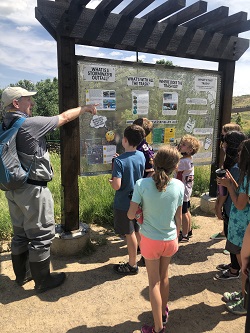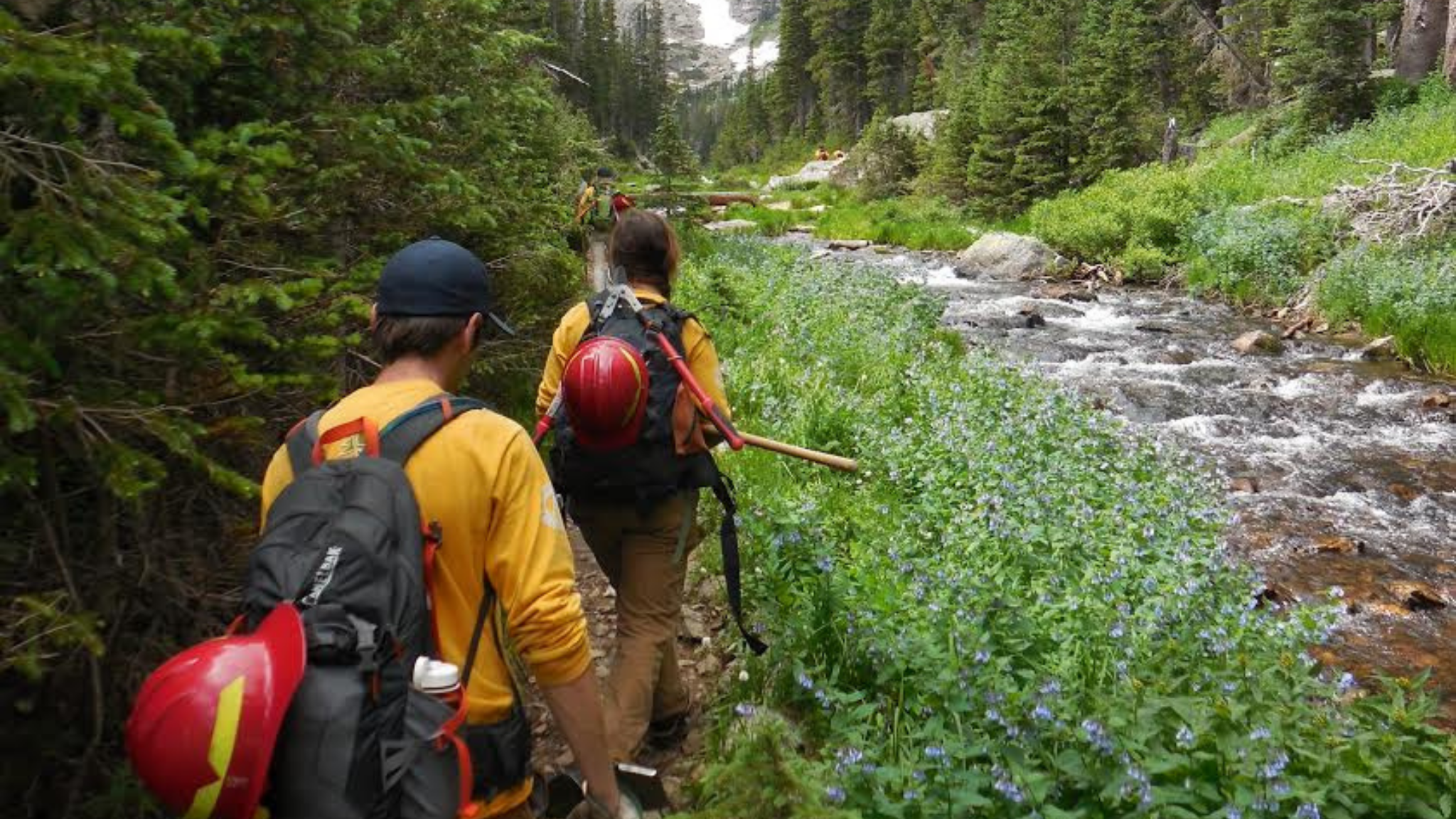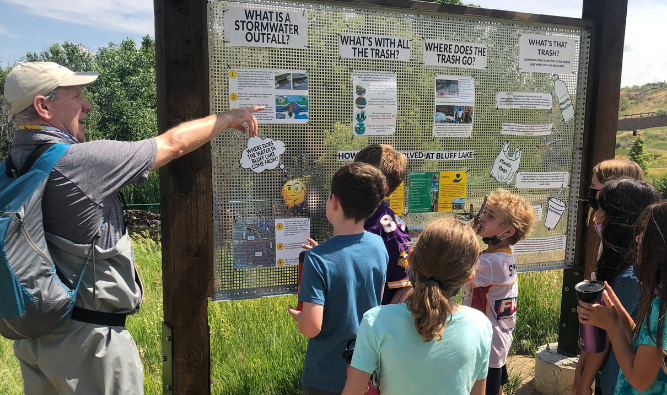By Alia Q., high school River Ranger at The Greenway Foundation, age 17

Donny Roush, whose official job title is the “Stormwater Education and Outreach Program Administrator,” labels his job more simply as “an Environmental Educator for the city.” In compliance with the Clean Water Act, which requires cities to incorporate education and outreach into their programming, the City of Denver created this position to do exactly that. Roush explains that Denver believes educating youth about stormwater and preventative measures to keep waterways pollution free is vital, and has therefore created his position to lead these efforts. Consequently, the majority of Roush’s work is partnering with community organizations and schools to educate youth of all ages about stormwater. Through his time in this position, Roush has grown Denver’s Stormwater Education and Outreach into a sophisticated, permanent program that can serve as an example for cities across the nation.
Roush became intrigued by the environment at a very young age. Growing up by a creek, he would learn by exploring the environment and ecosystems around him. In college, Roush learned that he could pursue a career in the environmental field. However, upon graduating college, he left with a Bachelor's degree in journalism. He describes that he has strong communication and writing skills, and believed that he would thrive in the journalism industry. Despite this, Roush went back to school, and obtained a degree in environmental education. He explains that his first job out of college combined environmental education and communication, where he worked alongside ecology researchers, and communicated their discoveries to others. By learning that his two degrees, journalism and environmental education, were connected, Roush began to pursue careers involving environmental education and outreach, which eventually led him to his current occupation. When describing a typical “day in the life,” he says it varies from day to day, in other words, his work is not routine. For example, Roush’s schedule one week consisted of teaching a class of third graders, representing the city at a watershed meeting, assisting in rewriting nationwide standards for environmental education, and writing environmental justice grants. He says that his favorite aspect about his occupation is collecting and examining macroinvertebrates, and teaching about them to others. Roush recommends that for youth interested in the environmental field, they should build a strong network. To do this, he suggests leaning on those you already know to connect you to various individuals or opportunities. In doing so, youth can have strong support from professionals and become involved in opportunities to pursue their passion outside of the classroom. Lastly, from his years of experience in the environmental field, Roush says the most important thing he has learned is that there is always something that you do not know, and you can always learn more.



